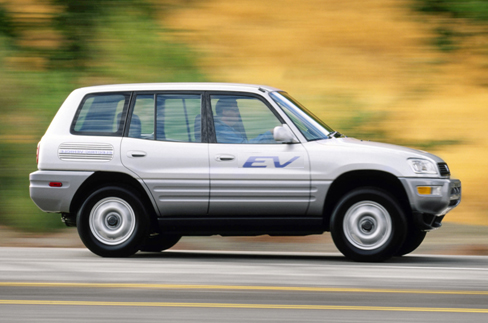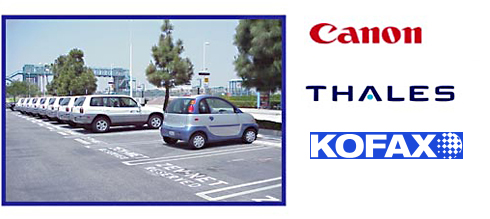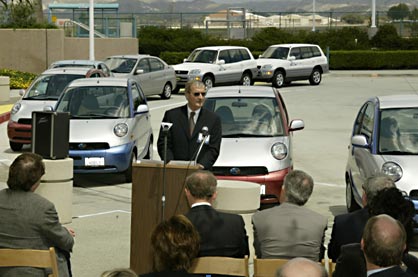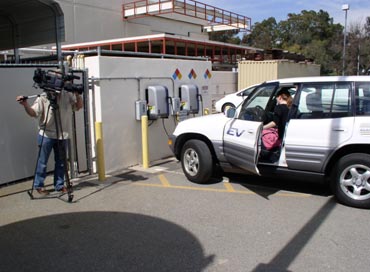ZEV
·NET was a research program designed to provide convenient environmentally sensitive transportation alternatives to commuters for traveling to work, daytime meetings and appointments. The acronym "ZEV
·NET" stands for Zero Emission Vehicle
·Network Enabled Transport and represented the program's use of electric vehicles that were equipped with Global Positioning System (GPS) technology in conjunction with scheduling software so that the vehicles can be efficiently shared among commuters.
ZEV
·NET was a not-for-profit venture that included a research component. Its purpose was to:
- • Develop relevant information technologies and to facilitate standardized protocols and procedures
- • Create a model that best serves the commuting public and corporate business sector
- • Integrate station cars with photovoltaic (solar) panels and stationary fuel cells in order to establish a truly zero-emission transportation strategy
- • Establish a test bed for intelligent transportation system sensors and information technology.
A Day in the Life of a ZEV·NET Shared-Use Electric Station Car
The Vehicle
ZEV
·NET utilized the Toyota RAV4-EV. The RAV4-EV was a compact sport utility vehicle, powered by a maintenance-free, permanent magnet motor, producing 50kW of power (equivalent to 67-horsepower gasoline engine). This maintenance free motor was "fueled" by a 24-12volt nickel-metal hydride batteries located under the vehicle's floor. It had a top speed of 78 mph, and a range between 80-100 miles per charge. The ZEV
·NET program also included these easy-to-use features:
- • On line reservation system
- • Wireless networking
- • Smart Card vehicle access
- • Edicated charging stations at the Irvine Transportation Center
- • Real-time monitoring of vehicle performance and status
- • 24 Hour Roadside Assistance
 Toyota Rav 4 EV
Toyota Rav 4 EV
Participants
To participate a company must meet the following requirements:
- • Identify at least 2 drivers who will commute daily to/from the Irvine Transportation Center
- • Retain an additional pool of at least 8 drivers who will use the vehicle throughout the day.
- • Provide a yearly fixed fee per vehicle

Outreach
 Dedication ceremony at the Irvine Transportation Center on July 5, 2002
Dedication ceremony at the Irvine Transportation Center on July 5, 2002
 History Channel films segment for "Modern Marvels Edison Tech" episode
History Channel films segment for "Modern Marvels Edison Tech" episode
.jpg)



